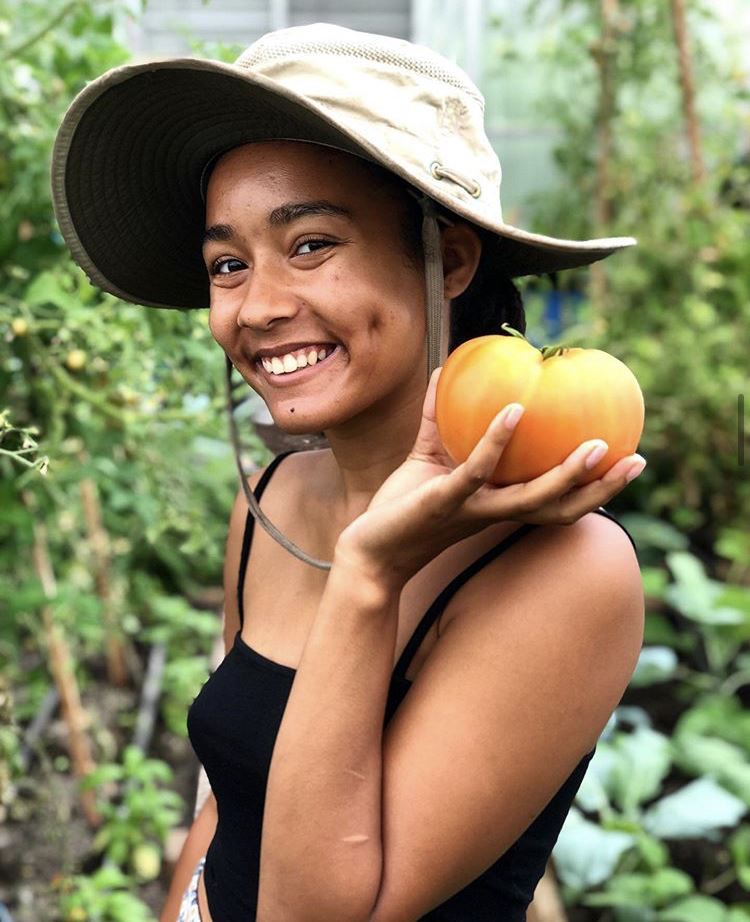Social and Land Equity Series, January Session:
Food Access and Sovereignty in the Urban Landscape
By Cheyenne Sundance
Thank you to everyone who registered for this session.
The video of the presentation and the Q&A that followed is posted below.
Below the video you'll find the links that Cheyenne shared during her presentation
Links shared by Cheyenne in her presentation:
Learning resources (first two links shared)
The two berry bushes that Cheyenne added to the chat are: Haskap Berry and Seabuckthorn
The Liberating Lawns ProgramCheyenne Sundance is the owner and manager of Sundance Harvest, a year-round urban farm in Toronto, ON that's rooted in food justice and eradicating systemic racism in the food system. Sundance Harvest grows a variety of produce and runs a free educational program called Growing in the Margins for low-income youth who are a part of a marginalized group (BIPOC, LGBTQ2S+ and youth with disabilities). As an organic farmer, Cheyenne has worked in both rural and urban settings where she tended to fields of vegetables, fruit forests and livestock. Her farming has always been with a social justice framework since being able to grow your own food is the foundation of independence. She is a food justice educator with experience working in community organizing and political resistance movements. Find more on Cheyenne and Sundance Harvest: |
|
Cheyenne's Presentation Will Include:
All about Sundance
How Sundance Harvest got started, why it got started, roadblocks, where it's going and of course, why Sundance Harvest matters in terms of equity and justice.
Breaking Down and Digesting Food Justice and its Place in a Equitable Urban Landscape
Food security, food justice and food sovereignty. Connecting them and helping participants understand how each work and how they are very different through some real life examples and experiences.
Examples of Equitable Food Access in an Urban Landscape
In this section, Cheyenne will explore different types of urban farms, composting projects and community based projects that center those who are most affected in the food system. She will break down how they work and provide examples from each project that can be utilized in your own practice.
Moving Forward
Detailed, actionable steps that participants can take within the existing food system.
Ex: actionable items for a neighbour who would like to see more equitable access in their local community garden etc.
Q+A

